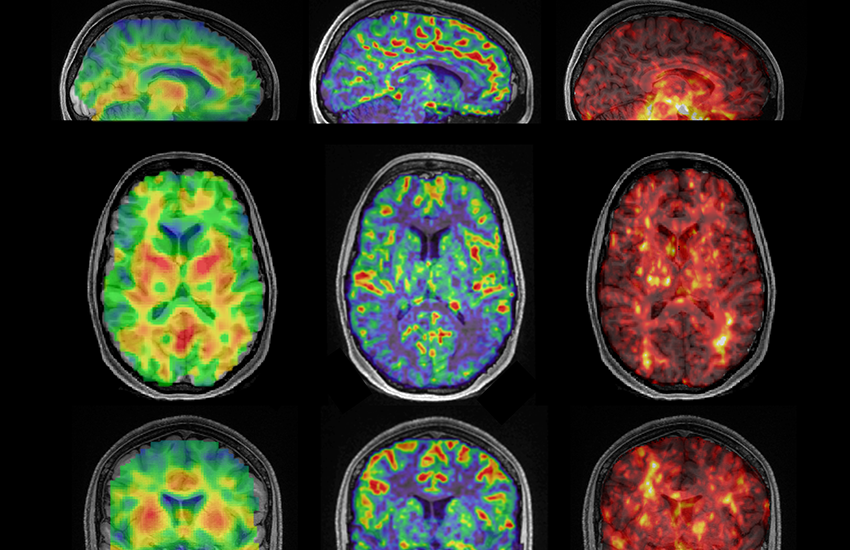UW Mechanical Engineering serves the public through world-class education and research that aims to create a healthier, more sustainable world. Our researchers are developing interdisciplinary solutions to society’s challenges across the following areas.
Fundamental areas

Advanced materials
Next-generation materials drive innovations in areas such as advanced manufacturing, robotics, energy, biomedical technologies, and the environment.

Biomechanics
ME develops and researches innovations, such as medical imaging tools or technologies that support mobility, to improve diagnoses and treatment of injury or disease.

Data science and
artificial intelligence
Tools like machine learning are increasingly important for engineers and are being applied to real-world problems related to manufacturing, human health, energy-efficient materials and more.

Dynamical systems and mechatronics
For applications such as advanced manufacturing, robotics, medical devices and environmental monitoring, ME researchers study or design dynamical systems that are constantly moving and changing, including mechatronics systems.

Mechanics of
materials
Studying how and why materials bend, deform, carry loads and break — and how to make materials tougher and more resistant to damage — is behind almost every branch of ME requiring high-performance materials.

Fluids and thermal sciences
Understanding how liquids and gases transport momentum and energy is central to various industries, including transportation, advanced manufacturing, robotics, energy and health care.
Application areas
Find faculty by fundamental and application area
ME researchers use their technological expertise to help industry across the state and the U.S. improve products, services and processes. Examples include creating stronger materials for aerospace, and using robotics to optimize manufacturing.
| Fundamental area | Advanced manufacturing faculty |
| Advanced materials | Jae-Hyun Chung, Corie L. Cobb, Mohammad Malakooti, Lucas Meza, Steve Shen, Nate Sniadecki, Aniruddh Vashisth, Junlan Wang, Jie Xiao |
| Data science and artificial intelligence | Steve Brunton, Monica Li, Yaodong Li, Mohammad Malakooti, Krithika Manohar, Juming Tang, Aniruddh Vashisth |
| Fluids and thermal sciences | Steve Brunton, Monica Li, Krithika Manohar, Juming Tang |
| Mechanics of materials | Jae-Hyun Chung, Corie L. Cobb, Ramulu Mamidala, Lucas Meza, Steve Shen, Mohammad Malakooti, Aniruddh Vashisth, Junlan Wang, Jie Xiao |
| Dynamical systems and mechatronics | Xu Chen, Santosh Devasia, Monica Li, Yaodong Li, Steve Shen, Duane Storti |
| Biomechanics | Jae-Hyun Chung, Lucas Meza, Nate Sniadecki, Junlan Wang |
Through collaborating with clinicians and commercializing devices, our faculty and students work to improve the quality of health care, including medical diagnoses and treatments, while reducing costs.
| Fundamental area | Biomedical science and technology faculty |
| Advanced materials | Jae-Hyun Chung, Corie L. Cobb, J. Devin MacKenzie, Dayong Gao, Lucas Meza, Steve Shen, Mohammad Malakooti, Nate Sniadecki, Aniruddh Vashisth, Junlan Wang, Jie Xiao |
| Data science and artificial intelligence | Stefania Fresca, Dayong Gao, Mehmet Kurt, Ashish Manohar, Eric Seibel, Katherine Steele |
| Fluids and thermal sciences | Alberto Aliseda, Stefania Fresca, Dayong Gao, Michael Bailey, Ayokunle Olanrewaju, Juan Carlos del Alamo, Igor Novosselov, Jonathan Posner |
| Mechanics of materials | Jae-Hyun Chung, Lucas Meza, Steve Shen, Eric Seibel, Junlan Wang |
| Dynamical systems and mechatronics | Michael Bailey, Steve Shen, Mehmet Kurt, Eric Seibel, Katherine Steele |
| Biomechanics | Jae-Hyun Chung, Stefania Fresca, William Ledoux, Ayokunle Olanrewaju, Joe Powers, Feini Qu, Jenny Robinson, Ashish Manohar, Lucas Meza, Mehmet Kurt, Nate Sniadecki, Junlan Wang, Katherine Steele |
To enhance efficiencies and reduce environmental impacts, our faculty and students are advancing research in areas such as renewable energy, battery materials and storage, energy conversion and optimization, hybrid and electric vehicles, and combustion systems.
| Fundamental area | Energy faculty |
| Advanced materials | Corie L. Cobb, J. Devin MacKenzie, Mohammad Malakooti, Junlan Wang, Jie Xiao |
| Data science and artificial intelligence | Steve Brunton, Stefania Fresca, Mohammad Malakooti, Krithika Manohar, Juming Tang |
| Fluids and thermal sciences | Alberto Aliseda, Steve Brunton, Stefania Fresca, John Kramlich, Igor Novosselov, John Palmore Jr., Krithika Manohar, Juming Tang, Brian Polagye |
| Mechanics of materials | Corie L. Cobb, Sirine Maalej, J. Devin MacKenzie, Mohammad Malakooti, Junlan Wang, Jie Xiao |
| Dynamical systems and mechatronics | Brian Polagye |
| Biomechanics | Stefania Fresca, Junlan Wang |
ME is developing next-generation materials, devices and systems that solve environmental challenges. Our research aims to advance the adoption of renewable energy, create sustainable materials for electronics and more.
| Fundamental area | Environment faculty |
| Advanced materials | Jae-Hyun Chung, Dayong Gao, Lucas Meza, Aniruddh Vashisth, Jie Xiao |
| Data science and artificial intelligence | Stefania Fresca, Dayong Gao, Aniruddh Vashisth |
| Fluids and thermal sciences | Stefania Fresca, Dayong Gao, John Kramlich, Igor Novosselov, John Palmore Jr. , Brian Polagye |
| Mechanics of materials | Jae-Hyun Chung, Lucas Meza, Aniruddh Vashisth, Jie Xiao |
| Dynamical systems and mechatronics | Brian Polagye |
| Biomechanics | Jae-Hyun Chung, Stefania Fresca, Lucas Meza |
ME researchers are advancing robotics through innovations in advanced materials, data science and AI, and dynamical systems and mechatronics.
| Fundamental area | Robotics faculty |
| Advanced materials | Dayong Gao, Steve Shen, Mohammad Malakooti, Aniruddh Vashisth |
| Data science and artificial intelligence | Ashis Banerjee, Steve Brunton, Dayong Gao, Michelle Hickner, Monica Li, Mohammad Malakooti, Krithika Manohar, Aniruddh Vashisth, Eric Seibel, Katherine Steele |
| Fluids and thermal sciences | Steve Brunton, Dayong Gao, Monica Li, Krithika Manohar |
| Mechanics of materials | Steve Shen, Mohammad Malakooti, Aniruddh Vashisth, Eric Seibel |
| Dynamical systems and mechatronics | Xu Chen, Santosh Devasia, Monica Li, Sawyer Fuller, Joseph Garbini, Steve Shen, Eric Seibel, Katherine Steele |
| Biomechanics | Katherine Steele |